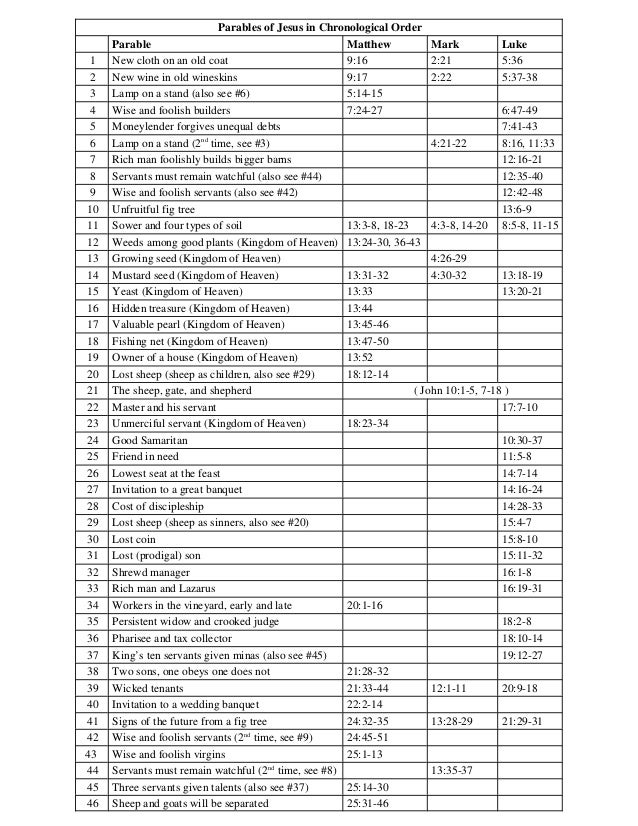

Isa 5:1-7 – Vineyard yielding wild grapes.Judges 14:12-18 – Riddle: strong bringing forth sweetness.Judges 9:7b-15 – Trees looking for a king.Gen 49:9 & Num 23:24 – Lions & lionesses.Rather than having us "stop thinking", they invite us to "stop and think"!īoth shorter proverbs and longer story-parables are already found in the Old Testament / Hebrew Bible. Rather than reaching a conclusion, they challenge us to keep on thinking! Yet to say "A is like B" does not mean that "A is identical to B in all respects" so one should be careful not to misinterpret or misapply the parables. Parables do not define things precisely, but rather use comparisons to describe some aspect of how God acts or interacts with human beings.They should cause you to say, "Wait a minute! That's not how farmers do their work! That's not what kings usually do! That's not what normally happens in nature!" And this strange element should cause you to think! Most parables contain some element that is strange or unusual.If we assume we know what Jesus is talking about, we are probably missing the main point if we are too familiar with the story (having heard it so often before), we might not think carefully enough about its real meaning. The meaning of most parables (both the short sayings-parables and the longer story-parables) is not so obvious, or at least it shouldn't be.Dodd, The Parables of the Kingdom, New York: Charles Scribner's Sons, 1961, p.

Scholarly Definition: "At its simplest a parable is a metaphor or simile drawn from nature or common life, arresting the hearer by its vividness or strangeness, and leaving the mind in sufficient doubt about its precise application to tease it into active thought."(C. Please see a separate webpage, Parables in the Bible, describing the use of the biblical vocabulary related to parables. Parables in the New Testament Parables and Parabolic Images in the GospelsĪlthough we usually think of biblical parables as the brief "stories" told by Jesus, the Greek word παραβολή ( parabolē) - and the related Greek παροιμία ( paroimia) and Hebrew mashal - are also used for other short "figures of speech" in the Bible (OT and NT), including proverbs, sayings, riddles, etc.


 0 kommentar(er)
0 kommentar(er)
